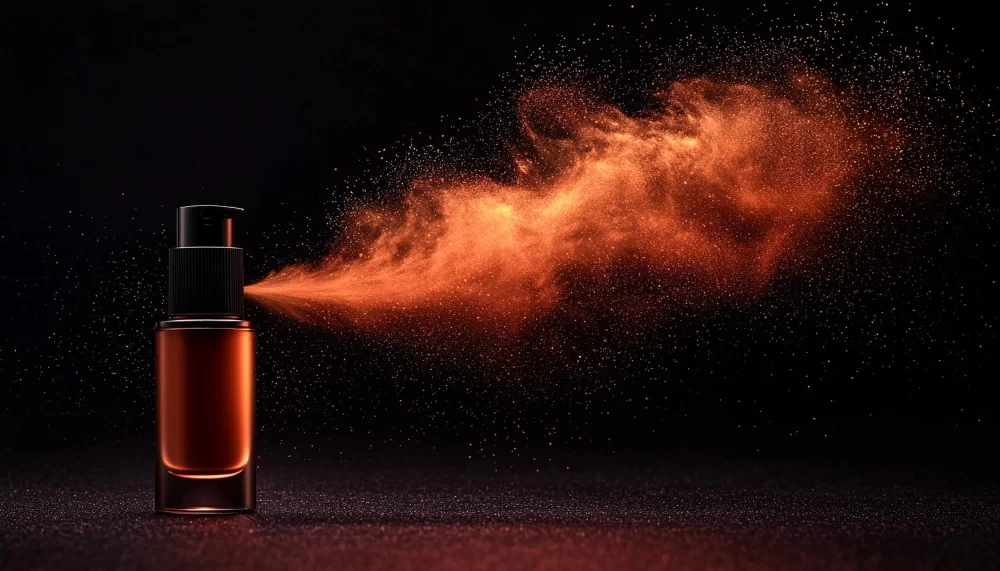- Difference-between-Perfume-and-Body-Spray
- Fragrance-Intensity-and-Longevity
- Use-Cases-for-Perfume-and-Body-Spray
- Personal-Preferences-and-Skin-Compatibility
- Professional-Recommendations-from-Scent-Snob
1. Difference between Perfume and Body Spray
Choosing between perfume and body spray can be confusing for many fragrance enthusiasts, especially those new to the world of scents. Both products serve the purpose of enhancing personal aroma but do so in distinctly different ways. Perfume is a concentrated form of fragrance, typically containing between 15-30% aromatic compounds dissolved in alcohol and oils. This high concentration results in a richer, more complex scent that evolves over time, revealing different notes as it interacts with your skin.
Body spray, on the other hand, is much lighter and less concentrated, often containing only 1-5% fragrance oils mixed with a higher proportion of alcohol and water. This makes body spray more subtle, refreshing, and easier to reapply throughout the day. While perfumes are designed for longevity and depth, body sprays offer an airy freshness perfect for casual or active settings.
Understanding this fundamental difference is essential when deciding which fragrance type suits your lifestyle and personal taste better.
1.1 Composition and Scent Profile
Perfumes typically have a layered structure known as the top, middle, and base notes, which develop sequentially after application. Body sprays tend to have a simpler, more immediate scent impact without significant evolution. This means a perfume can offer a storytelling experience through scent, while body sprays give quick bursts of aroma.
1.2 Packaging and Application
Perfumes are usually presented in smaller bottles with spray nozzles designed for targeted application. This encourages users to apply to pulse points such as wrists and neck, where warmth helps diffuse the fragrance. Body sprays are often packaged in larger cans, allowing for a more generous misting over the body or clothing.
2. Fragrance Intensity and Longevity
One of the biggest factors influencing whether perfume or body spray is better lies in fragrance intensity and lasting power. Perfumes, because of their high oil concentration, can last anywhere from six to twelve hours, sometimes even longer depending on the brand and skin chemistry. This makes perfumes ideal for occasions where you want a consistent and noticeable scent that endures.
Body sprays generally last between one to three hours, as their lighter formulation evaporates quickly. This shorter lifespan means body sprays require more frequent reapplication but offer flexibility for refreshing your scent during busy days or workouts.
2.1 Case Study: Daily Use Comparison
Consider Sarah, a marketing professional who prefers subtlety at work. She uses a body spray in the morning to keep fresh and lightly scented, then switches to a perfume for evening events to leave a lasting impression. This practical combination highlights how each product can complement different parts of a daily routine.
3. Use Cases for Perfume and Body Spray
The decision between perfume and body spray often depends on when and where you intend to wear the fragrance. Perfume is well suited for formal occasions, date nights, or events where you want your scent to be a signature element of your presence. Its longevity and complex aroma create a sophisticated aura that can boost confidence.
Body sprays shine in casual settings, gym sessions, or hot weather, where a light scent can refresh and invigorate without overwhelming the senses. Athletes, teenagers, and those who prefer a minimalist fragrance often gravitate towards body sprays for their ease of use and affordability.
3.1 Personal Story: The Fitness Enthusiast
John, an avid runner, shares how body sprays fit perfectly into his routine. He appreciates how the spray provides a quick scent boost after workouts without clashing with his deodorant or feeling heavy. His choice reflects the practical benefits body sprays offer in active lifestyles.
4. Personal Preferences and Skin Compatibility
Another crucial factor when choosing between perfume or body spray is how your skin interacts with the fragrance. Because perfumes contain higher concentrations of oils and alcohol, they may cause irritation for sensitive skin types or react differently with natural body chemistry, altering the scent. Testing perfumes before purchase and applying them to pulse points can help ensure compatibility.
Body sprays are often formulated to be lighter and less likely to cause irritation, making them suitable for individuals with sensitive skin or those prone to allergic reactions. However, the fragrance is usually less intense, which some users may find unsatisfying.
4.1 Expert Tip: Patch Testing
Experts recommend performing a patch test when trying a new fragrance, whether perfume or body spray. Apply a small amount on your inner wrist and observe for any redness or discomfort within 24 hours. This simple step can prevent unpleasant reactions and help you find the fragrance best suited to your skin.
5. Professional Recommendations from Scent Snob
At Scent Snob, we understand the nuances between perfume and body spray, and we tailor recommendations to your individual needs. Whether you want a long-lasting signature scent or a refreshing everyday spray, our curated collection covers all preferences and occasions.
For those seeking a perfume that balances longevity with subtlety, our experts recommend trying lighter eau de parfums that deliver elegance without overwhelming. If your lifestyle calls for versatility and frequent reapplication, our top-rated body sprays provide fresh and invigorating aromas at great value.
Exploring different options and understanding your scent goals is key. Visit Scent Snob to find personalized advice and products that help you make an informed choice between perfume and body spray, ensuring you always smell your best.


0 comments